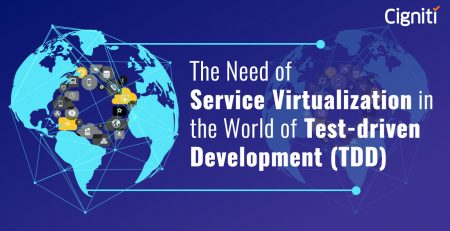Service Virtualization Testing: The Challenges You Need To Overcome
Service Virtualization is being quickly adopted by CIOs and IT teams of organizations that were reeling under constant pressure over budget allocations and other financial constraints. Virtualization leads to lower number of resources in QA with improved product quality as exemplified in our previous blog post A Guide To Understanding Service Virtualization In Software Testing.
As with any groundbreaking innovation in IT, service virtualization too came with its own breed of challenges that had to be diligently solved before becoming a mainstay in the software development life cycle.
Incompatibility of 3rd party components
A considerable amount of software plugins and interfaces that are used in modern day application development offer easy integration with service virtualization tools. However, there are 3rd party plugins which may not be as adaptable as the rest to a virtualization environment. Hence creating a virtual emulation environment for such components becomes a challenge.
Physical device requirement
Very often service virtualization testing raises the requirement for additional hardware resources for stimulating the actual production environment. To set up the actual production environment using virtual resources would require time consuming configurations on physical devices and could thus create overheads.
Conflict of operations
Virtualization systems often rely on heavily configured drivers in existing systems and these configurations could result in potential conflicts with tested equipment drivers.
Training requirements
Though service virtualization testing is a replication of the actual production environment, QA and testing teams require additional training on how to handle virtualization tools and procedures.
Storage and Memory constraints
Creating a fully blown production environment for stimulating the actual one involves memory utilization to unforeseen limits. This can lead to excess memory usage of available system resources and could potentially be a reason for system slowdown. The issue can be easily resolved with the help of higher memory hardware but it would involve bigger costs.
Failure notification and Recoverability
Unlike traditional software development environments, virtual environments are not t equipped with diagnostic tools to detect failures and crashes. With poor application visibility, teams using the environment are informed about failures after a considerable delay and thus recoverability becomes a Herculean task. In other words it becomes nearly impossible to restart a virtualization environment unless the precise fault is found.
The ideal case
As the universal law goes, no hardware or software is 100% perfect. Virtualization systems offer close to what is really a production environment in all cases, but it is always recommended to have the entire application tested in actual production environment after all development tasks are through.
Virtualization helps to shorten the actual development cycle as bugs and faults get resolved much earlier. The benefits it has to offer outweigh the challenges it has to pose for organizations adopting them. It is much easier to bring out a product into the market once service virtualization testing has been performed. Lower bugs, better quality and speedy time to market makes the difference between a great product and a failed one. Service virtualization definitely helps in a more stable product.
If your product development environment is lagging behind due to poor service virtualization testing, then get in touch with Cigniti today. Our expert consultants will handle all aspects of virtualization on your behalf, leaving you with considerable financial, human and technological resources to focus on your core operations. Get to know more about our virtualization testing services at our website.





Leave a Reply